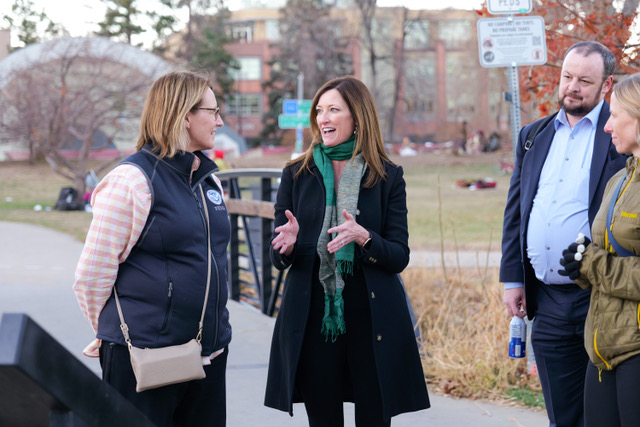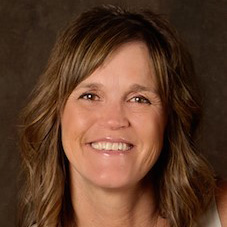The Center for Resilience and Well-Being (CRW) was recently awarded a 3 million grant from the Substance Abuse and Mental Health Services Administration’s (SAMHSA) National Child Traumatic Stress Network (NCTSN) with several community partners. The grant will fund the five-year project, “The Community Collective for Trauma-Informed, Evidence-Based Prevention and Treatment Services.”
The project has three main goals, all of which will involve deep collaboration with community partners:
- Develop collaborative infrastructure for a community-based prevention hub that provides trauma-informed, evidence-based prevention services (TI-EBPs) for youth, families and schools.
- Improve behavioral health outcomes and reduce health disparities by implementing and sustaining culturally responsive TI-EBPs in local and rural communities.
- Promote long-term sustainability of culturally responsive TI-EBPs for youth and families exposed to trauma.
“It is an honor and a privilege to receive this award,” says CRW Director and Principal Investigator for the project,” Monica Fitzgerald. “It allows us to closely partner with youth-serving community agencies and schools in local Boulder County and across urban and rural parts of Colorado to increase youth and family access to the highest quality trauma-informed and evidence-based prevention and intervention supports. These programs and services will be provided in English and Spanish and embedded where families feel most comfortable seeking services and resources.”
Along with front range communities, Montrose and Garfield counties will receive access to TI-EBPs, facilitated through regional coordinators. Rural communities in particular experience higher rates of adverse childhood events and barriers to services, including issues with transportation, insurance, language, availability and stigma.
The project also addresses critical gaps in access to linguistically and culturally responsive services. Despite 50% of the population speaking Spanish, Garfield County has a shortage of Spanish-lead services. Meghan Backofen, regional coordinator for Garfield County and child welfare treatment provider for Garfield’s Human Services Department, emphasizes the lack of parenting classes for Spanish-speaking parents and Spanish-speaking therapy and treatment providers as a key cause of health disparity for her community.
In the past four years, two-thirds of family services provided by CRW and their partners in Boulder and Broomfield counties were delivered in Spanish, and the team is excited to expand these efforts with the SAMHSA grant. Their local team includes bilingual/ bicultural staff dedicated to community outreach, engagement, and service delivery, as well as amplifying the voices of families and ensuring cultural relevance and accessibility of all CRW programs and resources. Backofen looks forward to the grant increasing TI-EBP training and the availability of bilingual providers and services in Garfield County.
Along with Backofen, Jessica Gorrono, regional coordinator for Montrose County, is enthusiastic about the impact of TI-EBPs on her home county.
“The funding from this award will allow the systems, professionals and community members that work each day to improve the well-being and mental health of the youth and families who are the future of this community,” says Gorrono. “I’m particularly excited about the opportunity to increase access to high quality prevention services to further build resilience in Montrose’s youth and families,” says Gorrono.
The project will implement the following TI-EBPs within communities:
- Prevention Services: Let’s Connect® (LC) for families, Resilience in Schools and Educators (RISE) for schools, and the Calm and Connected Toolkit (CCT) for Mental Health Prevention in schools.
- Treatments/Therapy: Trauma-Focused Cognitive Behavioral Therapy® (TF-CBT), Alternatives for Families Cognitive Behavioral Therapy®(AF-CBT)
The SAMHSA NCTSN program was a natural fit for the CRW project. The purpose of the grant program is to increase access to effective trauma and grief-focused treatment and service systems for children, adolescents, and families who have experienced traumatic events. Through the program, SAMHSA aims to raise the standard of care and improve access to evidence-based services for children experiencing trauma across the nation. By focusing on rural and high-need communities of Colorado, the CRW project will showcase the effectiveness and sustainability of implementing TI-EBPs nationwide.
“Evidence-based prevention is one of the most powerful and cost-effective strategies for promoting health and reducing risk and behavioral health challenges for all youth, making it a powerful tool for promoting resilience and reducing health disparities,” says Shipman, who is PI on the project. “We are excited to expand this work with our partners and families throughout Colorado.”
To learn more about the project, visit the project website.
To learn more about the grant program, visit the SAMHSA website and NCTSN website.








